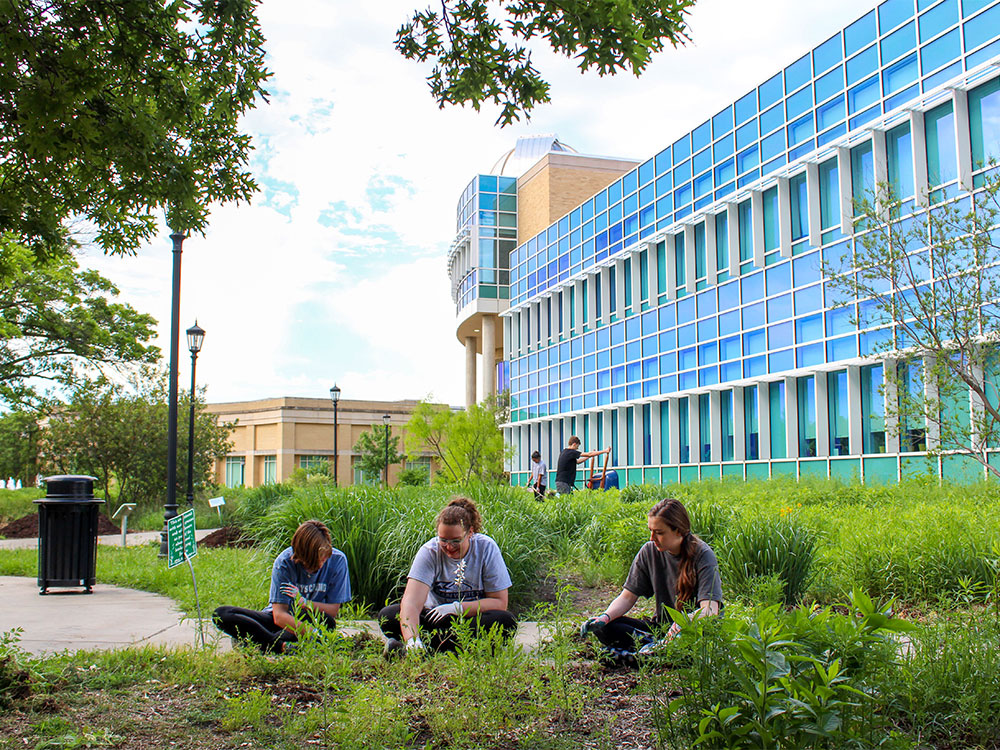Austin College Featured in The Princeton Review
Guide to Green Colleges 2021 Edition
 Austin College has again been named one of the nation’s most environmentally responsible colleges by The Princeton Review, which included the College in its Princeton Review’s Guide to Green Colleges: 2021 Edition. The latest version of the guidebook profiles 416 colleges.
Austin College has again been named one of the nation’s most environmentally responsible colleges by The Princeton Review, which included the College in its Princeton Review’s Guide to Green Colleges: 2021 Edition. The latest version of the guidebook profiles 416 colleges.
The Princeton Review chose the schools based on a survey of administrators at 695 colleges in 2019-2020 about their institutions’ commitments to the environment and sustainability. The company’s editors analyzed more than 25 survey data points in the process of choosing schools for the guide.
“We strongly recommend these schools to students who want to study and live at a green college,” said Rob Franek, The Princeton Review’s editor-in-chief. “Each and every one of the outstanding colleges in this edition of our guide offers both excellent academics and exemplary evidence of environmental commitment.”
Franek noted that The Princeton Review has seen a high level of interest among college applicants and their parents in colleges with green practices, programs, and offerings. Sixty-six percent of the 12,845 respondents (college-bound teens and parents) to The Princeton Review’s 2020 College Hopes & Worries Survey said that having information about a college’s commitment to the environment would affect their (or their child’s) decision to apply to or attend a school. See a report on the survey findings.
The school profiles in The Princeton Review Guide to Green Colleges include “Green Facts” sections detailing such matters as the availability of transportation alternatives on campus and the percentage of the college food budget spent on local/organic food. The profiles also provide information about the schools’ admission requirements, cost, financial aid, and student body demographics.
In its profile on Austin College, The Princeton Review cites, “When it comes to going green, Austin College is making some impressive strides.” The guidebook goes on to explain that through Thinking Green, student initiatives, and other programs, the College has reach 100 percent wind-generated energy and takes strides to involve all students enrolled in Introduction to Environmental Studies to submit campus greening proposals. Over two dozen proposals have been implemented so far including battery recycling, composting of food prep waste, elimination of incandescent bulbs, cell phone recycling, and installation of light colored roofs. Students also successfully passed a referendum to institute a student greening fee. The money funds new sustainability initiatives. Environmental studies students, the guide says, aren’t the only ones getting involved.
The Princeton Review has published its annual Guide to Green Colleges since 2010.
Austin College, a private national liberal arts college located north of Dallas in Sherman, Texas, has earned a reputation for excellence in academic preparation, international study, pre-professional foundations, leadership development, committed faculty, and hands-on, adventurous learning opportunities. One of 40 schools profiled in Loren Pope’s influential book Colleges That Change Lives, Austin College boasts a welcoming community that embraces diversity and individuality, with more than 50 percent of students identifying as persons of color. The residential student body of approximately 1,300 students and more than 100 expert faculty members allow a 13:1 student-faculty ratio and personalized attention. Related by covenant to the Presbyterian Church (USA), Austin College cultivates an inclusive atmosphere that supports students’ faith journeys regardless of religious tradition. The College, founded in 1849, is the oldest institution of higher education in Texas operating under original name and charter.



